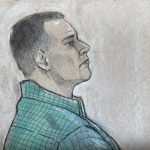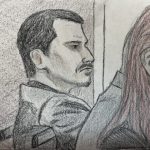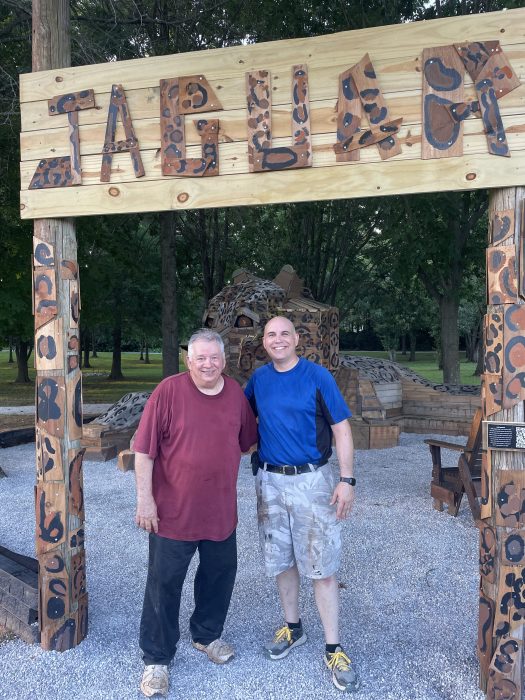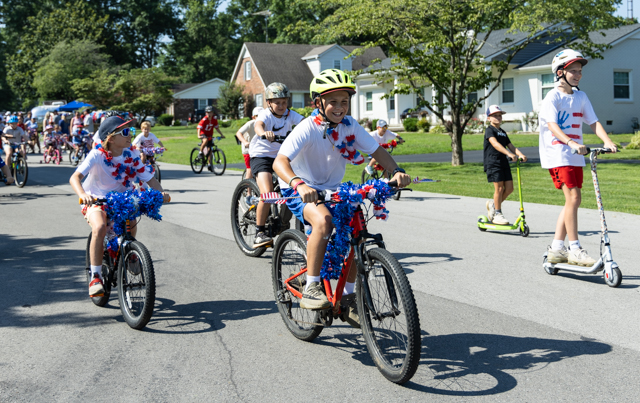Jury readies for deliberations in Crystal Rogers case
Published 6:00 am Monday, July 7, 2025



The 15-member jury panel for the trial of Brooks Houck and Joseph Lawson returns Monday to the Warren County Justice Center preparing to hear closing arguments in the case.
For two weeks, jurors have heard from dozens of witnesses in the trial of the two Bardstown residents accused of crimes in connection with the disappearance of Crystal Rogers.
Houck, 43, who was Rogers’ boyfriend and had a child in common with her, is charged with complicity to murder and complicity to tampering with physical evidence.
Lawson, 34, is charged with conspiracy to commit murder and complicity to tampering with physical evidence.
Rogers was 35 when she disappeared on July 3, 2015, in Nelson County.
Jurors have heard evidence that she traveled with Houck to his family farm that night and has not been seen since.
Rogers’ car was found abandoned on the Bluegrass Parkway on July 5, 2015, and authorities presume she is dead.
A grand jury in Nelson County returned indictments in 2023 against Houck, Lawson and his father, Steven Lawson.
The case attracted a storm of pretrial publicity, including the airing of a six-part docuseries in 2018 by the Oxygen Network focusing on Rogers’ disappearance.
The publicity forced the trials for all three men to be moved out of Nelson County and into Warren County.
A jury in April found Steven Lawson guilty of conspiracy to commit murder and tampering with physical evidence, recommending a 17-year sentence.
At this trial, prosecutors called 40 witnesses for its case-in-chief, plus one brief rebuttal witness, working to build a timeline of events to support its argument that Houck and the Lawsons conspired with one another to engineer Rogers’ death.
Specially appointed prosecutor Shane Young and his team have relied primarily on cell phone records, video surveillance footage and witness statements to build its case.
Authorities say that cell tower records and location data establish that Steven and Joseph Lawson were in contact with one another over the phone on multiple occasions on the night of July 3, 2015, going into the early hours of the next day, with Steven Lawson making a call to Houck shortly after midnight on July 4, 2015.
A handful of witnesses claimed to have overheard one of the Lawsons allude to Rogers’ disappearance, including an allegation that Joseph Lawson received $50,000 to move Rogers’ car.
The prosecution has had to rely on circumstantial evidence to make up for the lack of a body, weapon or crime scene.
Houck’s defense team of attorneys Brian Butler and Steve Schroering have pushed back on the prosecution’s argument, calling a total of six witnesses over Thursday and Friday.
A Louisville-based expert in cell phone data analysis for the defense testified that cell location data he reviewed for the case makes it more likely that Steven Lawson traveled on Boston Road on the night of July 3, 2015, instead of the parkway, which runs south of the road on a somewhat parallel path, while a psychologist testified for the defense that Kentucky State Police used coercive tactics during its interviews to elicit statements that incriminated Houck and the Lawsons.
Denver Butler, a retired Louisville Metro Police Department officer and former Kentucky state representative, was the final defense witness, testifying Friday about the extensive searches undertaken by numerous law enforcement agencies starting in 2015 and continuing into 2022 on the Houck family farm and nearby property, Houck’s residence and multiple vehicles driven by Houck and his relatives.
Based on his analysis of records of police searches provided by the defense, Butler, who is the founder and director of Clemency Investigations, a firm that focuses on reviews of criminal convictions with a claim of innocence, emphasized that various methods used to uncover DNA, blood or bodily fluids resulted in no trace evidence related to Rogers at the Houck family farm, Houck’s home, his truck, a police cruiser driven by his brother, Nick Houck, and a Buick driven by their grandmother, Anna Whiteside.
Butler disclosed that investigators found a pair of women’s underwear with hairs under the driveway while searching in 2021 at a house built by Houck’s construction company, as well as clothes under a sidewalk there.
The materials were sent to a lab for analysis, but no DNA profile could be created, so investigators do not know whose DNA may have been on the clothing.
Two hairs that were found in Rogers’ car that did not undergo testing for DNA should have been tested, Butler testified, countering testimony from former Nelson County Sheriff’s Office Detective Jon Snow that conducting testing risked destroying the hairs.
Testing of Rogers’ car also revealed no DNA belonging to either Joseph or Steven Lawson, Butler said.
Young cross-examined Butler, asking whether it was possible for a person to kill someone without leaving behind any bodily fluids at the scene.
“I’m sure it’s possible, but it’s highly unlikely,” Butler said.
Tentative plans voiced Friday by 10th Circuit Judge Charles Simms call for the jury to receive instructions Monday on using the law to decide the case, followed by closing arguments from the attorneys.
After three alternate jurors are selected from the panel, the remaining 12 jurors would deliberate the case beginning Tuesday.









